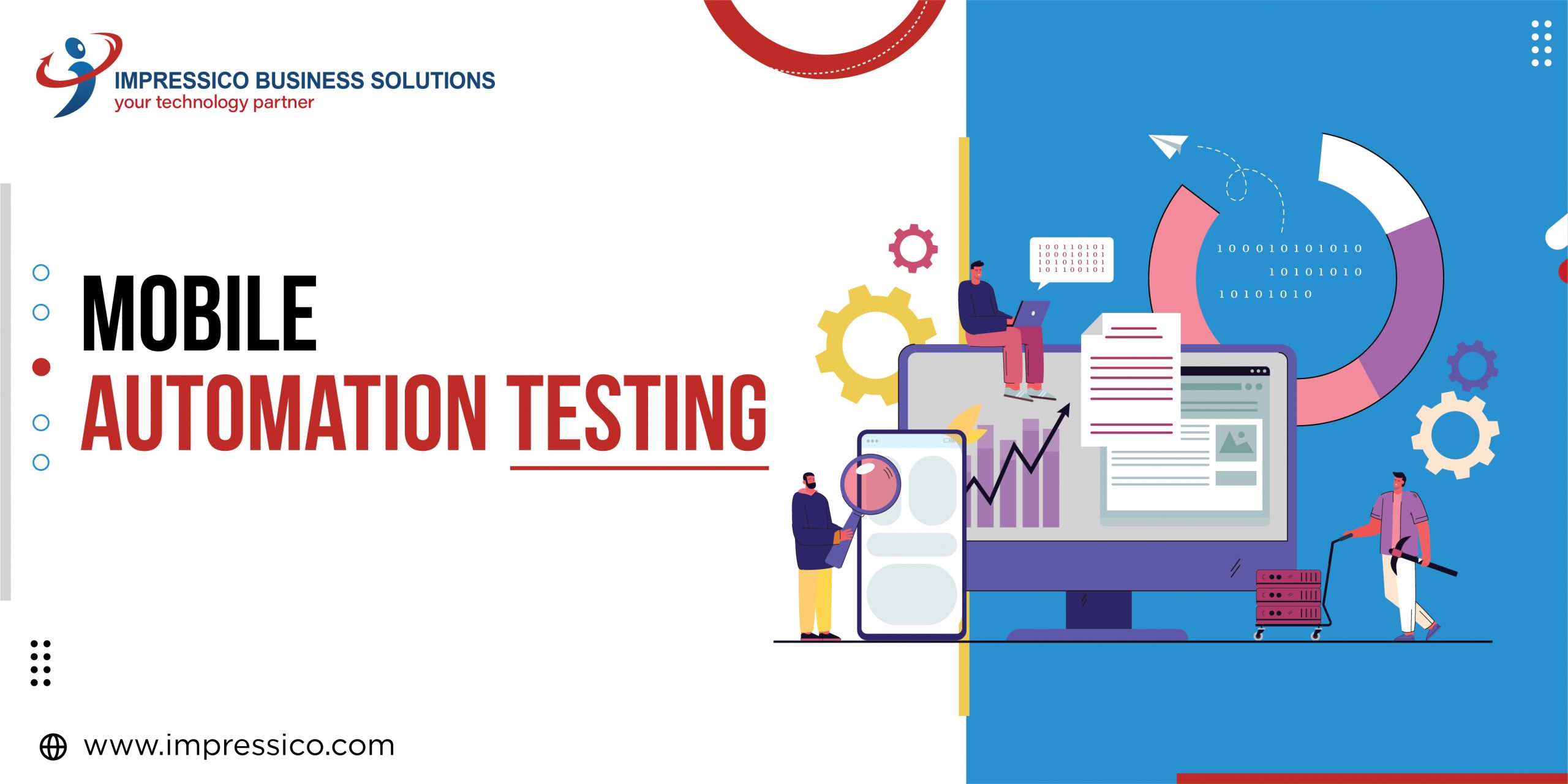Why and When Should Businesses invest in Mobile Automation Testing?

As per the “Automation Testing Market by Technology, Testing Type, Service, Endpoint Interface and Region – Global Forecast to 2023” report, the global automation testing market size is expected to grow from USD 8.52 billion in 2018 to USD 19.27 billion by 2023. (Source: Businesswire)
The need for digital transformation, the adoption of DevOps and Agile approaches, among other things, are the main drivers of the need for the automation testing market. These factors are in turn fueled by the exponential rise in the use of mobile technologies and devices. Automation mobile application testing does boost Return on Investment (RoI), but enterprises must be aware that it also creates opportunities for data breaches.
While businesses appear to be enjoying the enormous growth in the market for mobile technologies and devices, users’ happiness is affected by the shoddy mobile apps that have crowded the market. Almost everyone has at some point experienced a flawed app that has irritated, agitated, or even infuriated them because of the bugs that infested the app during the development process.
How is mobile test automation beneficial for any business?
A mobile application’s failure doesn’t just affects that particular application. Instead, it raises serious doubts and issues about the effectiveness, reliability, and quality of the other applications the company is developing, damaging its reputation and brand and lowering ROI.
As a result, mobile testing and its automation are essential to an organization’s success. An app is the representative of an organization, so in case of any backlash from the users, company decision makers can face a lot of criticism. It is quite depressing for your entire team who put so much time and effort into planning, developing, creating, and delivering the application to the market, in addition to suffering the losses and disgrace connected with the flawed software.
According to a study, the users have almost no tolerance for defective applications and also for the organizations which develop them. Approximately, 90 percent of the malfunctioning apps once downloaded by the users are used only once, and then permanently deleted. It indicates a clear message that if an application doesn’t provide the right customer experience, the users will delete it immediately and will move over to the other apps in a fraction of second. (Marketing Mag).
Therefore, it has become crucial for the C-suite to talk about how to modify, take on, and apply the best mobile test automation processes. Let’s take a quick look at a few key aspects of how mobile test automation might benefit businesses.
ROI: The majority of businesses would concur that maximizing ROI is their main goal. Investments must be made in the form of money, time, and resources to develop mobile-based applications. Although corporations are aware of how important it is to test these applications, the majority of them only make investments in manual testing. They should implement mobile test automation to assure app quality while saving time and money. Software tests must be conducted after every operating system upgrade or source code modification to ensure that any potential bugs are eliminated.
When compared to manual testing, test automation allows developers to perform continuous testing more quickly. For instance, while one manual tester can normally test 50 different scenarios over a scheduled workday, tests utilizing a 1000-test regression set can be completed in a single day. It is apparent that integrating test automation helps reduce costs significantly, accelerates time to market, and boosts ROI.
Increase in customer database: Clean, bug free applications that provide quality, and seamless functionality, are known to take care of security concerns that can provide instant gratification to customers. Naturally, these applications will be more widely used and accepted by customers than others. All firms that want to succeed and compete in today’s digitally disruptive market must have a sizable, satisfied client base.
Wider & Improved Test Coverage: Continuous Test Automation boosts the consistency, robustness, and range of testing thus improving the software quality. Automated testing also helps complete tasks such as validating database, memory, and file content – tasks that are difficult for manual testers to complete in a short period of time.
Non-stop Execution: The manual testing is impacted by the teams’ fatigue and the repetitive, dull nature of the work, which is overcome through test automation. Test automation ensures that tests are run continuously and nonstop throughout the day. Additionally, automating the tests frees you from the need to keep an eye on them during the entire procedure, with the guarantee of consistently producing flawless results on time. Saving every second is crucial for the businesses in order to succeed.
Seamless updates to the applications: Even after an app has been released to the marketplace, its evolution and development never stops. It is always necessary to update and improve the app. It is essential that the app be updated and improved upon regularly. If this is not done, it can lead to a very bleak future for the app. Continuous testing is required every time an app is updated to ensure that it is compatible with new versions. Companies that don’t update their apps often see a drop in popularity because they are not compatible with current hardware, OS versions, and devices.
Organizations must understand automation testing for mobile apps as it is essential to meet the dynamic requirements of the mobile application market.
Connect with Impressico’s Mobile Application Testing experts, who have knowledge and expertise in testing different types of mobile apps – native, web, and hybrid, and keep themselves updated with the latest methodologies, mind maps, and checklists based on platform updates. Leverage our exhaustive experience in mobile testing for varied domains like Banking, Insurance, Travel and Retail.
